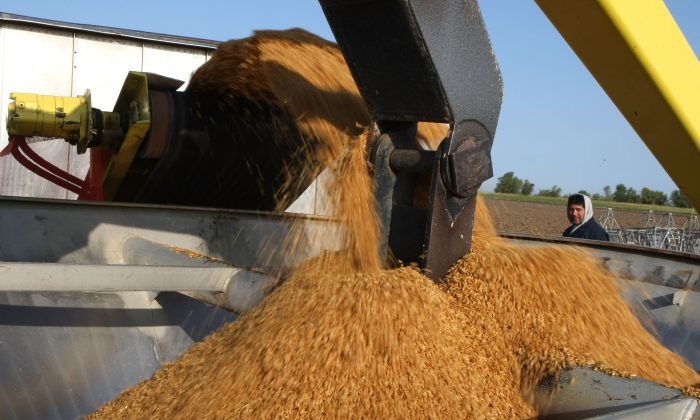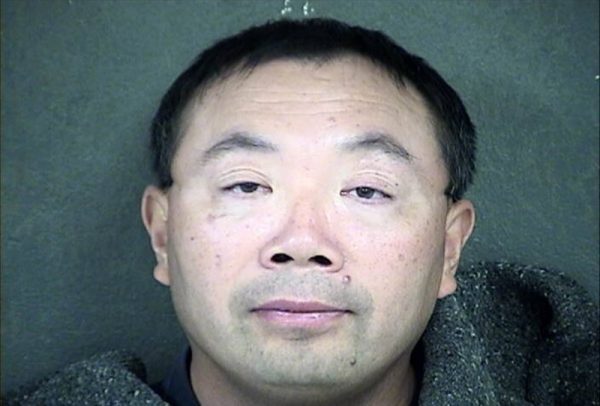Chinese Scientist Gets 10 Years in US Prison Over Theft of GMO Rice
April 5, 2018

Rice seeds are transferred to a bucket before being loaded onto a bi-plane for distribution over a rice field in Biggs, California, on April 25, 2008. (Justin Sullivan/Getty Images)
A Chinese scientist in Kansas was sentenced on April 4 to more than 10 years in a federal prison for conspiring to steal samples of a variety of genetically engineered rice seeds from a U.S. research facility, the U.S. Justice Department said.
U.S. District Court Judge Carlos Murguia in the District of Kansas sentenced Weiqiang Zhang, 51, a Chinese national living in Manhattan, Kansas, to 121 months in prison.
Zhang was convicted in February 2017 on three counts, including conspiracy to steal trade secrets and interstate transportation of stolen property, the department said in a statement.

Zhang, who holds a doctorate from Louisiana State University, worked as a rice breeder for Kansas-based Ventria Bioscience Inc., which develops genetically programmed rice used in the therapeutic and medical fields. He stole hundreds of rice seeds produced by Ventria and stored them at his Manhattan residence, the statement said.
In summer 2013, staff from a crop research institute in China visited Zhang at his Manhattan home. Zhang later drove the visitors to tour facilities in Iowa, Missouri, and Ohio, according to the statement. On Aug. 7, 2013, U.S. Customs and Border Protection officers intercepted Zhang’s visitors as they prepared to leave the United States to return to China, and found seeds belonging to Ventria in their luggage bags.
“Weiqiang Zhang betrayed his employer by unlawfully providing its proprietary rice seeds to representatives of a Chinese crop institute,” said John P. Cronan, DOJ’s acting assistant attorney general. “Today’s sentence demonstrates the significant consequences awaiting those who would steal trade secrets from American companies.”
Neither Zhang nor his attorney could be reached for comment on Wednesday.
Last year, the state-owned firm ChemChina purchased Swiss agrochemical and seed company Syngenta, which gave them access to patented genetically modified agricultural products that were cited as targets in the Chinese regime’s five-year plan, according to a recently published report on China’s intellectual property theft practices issued by the United States Trade Representative’s office.
In recent years, U.S. law enforcement officials have urged agriculture executives and security officers to increase their vigilance and report suspicious activity involving farm products, citing a growing economic and national security threat to the sector.
No comments:
Post a Comment
Comments always welcome!